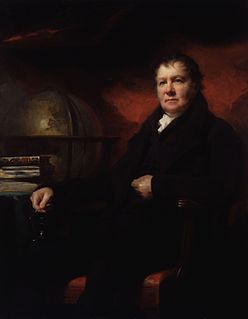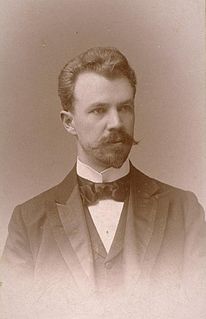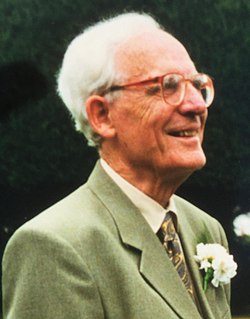A Quote by Guido von List
Now, because men of our contemporary age are caught up in the ascetic view of a life-denying religious system, but in spite of this cannot deny the primal laws of nature, a distorted morality had to be developed, which spreads hypocritical appearances over hidden actions. This has brought to a head all those outward forms of modern life, whose vacuousness and corruption are now beginning to disgust us.
Quote Topics
Actions
Age
Appearances
Ascetic
Because
Beginning
Brought
Cannot
Caught
Caught Up
Contemporary
Corruption
Deny
Denying
Developed
Disgust
Distorted
Forms
Had
Head
Hidden
Hypocritical
Laws
Laws Of Nature
Life
Men
Modern
Modern Life
Morality
Nature
Now
Our
Outward
Over
Primal
Religious
Spite
System
Those
Up
Us
View
Which
Whose
Related Quotes
The Author of nature has not given laws to the universe, which, like the institutions of men, carry in themselves the elements of their own destruction; he has not permitted in his works any symptom of infancy or of old age, or any sign by which we may estimate either their future or their past duration. He may put an end, as he no doubt gave a beginning, to the present system at some determinate period of time; but we may rest assured, that this great catastrophe will not be brought about by the laws now existing, and that it is not indicated by any thing which we perceive.
Science is not a system of certain, or -established, statements; nor is it a system which steadily advances towards a state of finality... And our guesses are guided by the unscientific, the metaphysical (though biologically explicable) faith in laws, in regularities which we can uncover-discover. Like Bacon, we might describe our own contemporary science-'the method of reasoning which men now ordinarily apply to nature'-as consisting of 'anticipations, rash and premature' and as 'prejudices'.
How shall we define occultism? The word is derived from the Latin occultus, hidden; so that it is the study of the hidden laws of nature. Since all the great laws of nature are in fact working in the invisible world far more than in the visible, occultism involves the acceptance of a much wider view of nature than that which is ordinarily taken. The occultist, then, is a man who studies all the laws of nature that he can reach or of which he can hear, and as a result of his study he identifies himself with these laws and devotes his life to the service of evolution.
If nature leads us to mathematical forms of great simplicity and beauty - by forms I am referring to coherent systems of hypothesis, axioms, etc. - to forms that no one has previously encountered, we cannot help thinking that they are "true," that they reveal a genuine feature of nature... You must have felt this too: The almost frightening simplicity and wholeness of relationships which nature suddenly spreads out before us and for which none of us was in the least prepared.
We should be most careful about retreating from the specific challenge of our age. We should be reluctant to turn our back upon the frontier of this epoch... We cannot be indifferent to space, because the grand slow march of our intelligence has brought us, in our generation, to a point from which we can explore and understand and utilize it. To turn back now would be to deny our history, our capabilities.
For me, the Immaculate Conception is the feast of 'passive action,' the action that functions simply by the transmission through us of divine energy. Purity, in spite of outward appearances, is essentially an active virtue, because it concentrates God in us and on those who are subject to our influence.
We cannot know the consequences of suppressing a child's spontaneity when he is just beginning to be active. We may even suffocate life itself. That humanity which is revealed in all its intellectual splendor during the sweet and tender age of childhood should be respected with a kind of religious veneration. It is like the sun which appears at dawn or a flower just beginning to bloom. Education cannot be effective unless it helps a child to open up himself to life.
Mr. Browborough, whose life had not been passed in any strict obedience to the Ten Commandments, and whose religious observances had not hitherto interfered with either the pleasures or the duties of his life, repeated at every meeting which he attended, and almost to every elector whom he canvassed, the great Shibboleth which he had now adopted "The prosperity of England depends on the Church of her people.
The longer I live, the more I feel that the individual is not so much to blame - not even the worst individuals, not even the 'best' citizens - as the system of corruption which has grown up about us, and which rewards an honest man with a mere living and a crook with all the magnificence of our magnificent modern life.
There is no longer a Christian mind ... the modern Christian has succumbed to secularization. He accepts religion - its morality, its worship, its spiritual culture; but he rejects the religious view of life, the view which sets all earthly issues within the context of the eternal, the view which relates all human problems social, political, cultural to the doctrinal foundations of the Christian Faith, the view which sees all things here below in terms of God's supremacy and earth's transitoriness, in terms of Heaven and Hell.
The great Christian art did not die because all possible forms had been used up; it died because faith was being transformed into piety. Now, the same conquest of the outside world that brought in our modern individualism, so different from that of the Renaissance, is by way of relativizing the individual. It is plain to see that man's faculty of transformation, which began by a remaking of the natural world, has ended by calling man himself into question.







































